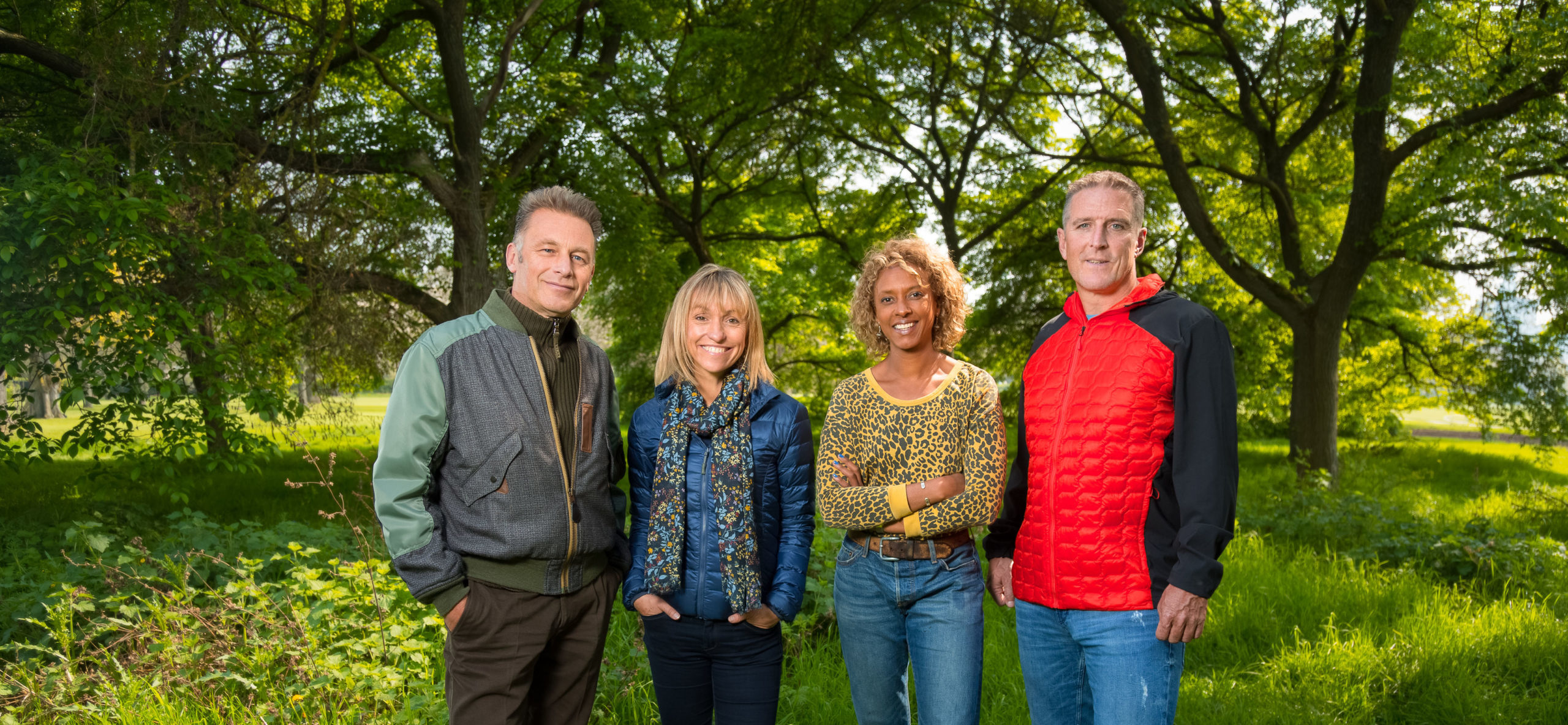


We were thrilled to have welcome BBC Springwatch to Wild Ken Hill in May and June this year. Below we share our thoughts on how we thought the series went.
Michaela Strachan and Chris Packham presented live from Wild Ken Hill four nights per week for three weeks. There was kilometres of cable spread across the farm, and at almost every turn there seemed to be a camera or other tech infrastructure. At the farm itself there was a huge satellite dish for broadcasting, and an outside broadcast truck full of screens and broadcasting equipment.
Even with such a huge operation, the whole BBC team fitted seamlessly into the working environment here. The whole crew and presenters were such a lovely group of people with a shared passion for nature. They were extremely sensitive carrying out their broadcasting around our working farm.
We were quite busy supporting the Springwatch team during the preparation period, but during the broadcast itself they were very self-sufficient. We were really able to leave them to it and then put our feet up and watch the show in the evening. By the way, for those of you who did not catch the show, you can catch up on BBC iPlayer.
The experience of watching the nest cameras was a joy we didn’t expect, from the swallows in farm manager Nick’s shed, the majestic red kites on the hill, to that incredible grey partridge nursing an insane amount of eggs (which all hatched on the final episode!). Those magical things can get lost when you are looking at the bigger picture. But when these small nests are available 20 hours per day, you can watch the eggs hatch, chicks grow as they are constantly brough mouthfuls of food, and then stretching their wings before fledging – these are moments that you might not see in a lifetime spent in the countryside.
We also had some extremely encouraging words from the Springwatch team. As well as the presenters, many of the researchers and other members of the team are experienced naturalists. They all had some really kind words to say about the project we are undertaking here at Wild Ken Hill as well as our vision for the future. In particular, they encouraged us to keep innovating and pushing the boundaries of land management, because the dividends for nature were very clear.
We hope that one of the main takeaways for viewers is that regenerative farming can reap huge benefits for the natural world, while still producing good quantities of the food we need to eat. Our three-pronged approach of tradition conservation, rewilding, and regenerative agriculture was championed on the show, and we hope that increased awareness of the work we are doing will lead more people to engage with us and visit our site. Not only do we have some great guided tours, but we also hope other farmers and land managers will come to inspect the rewilding and regenerative farming practices being used at Wild Ken Hill.
After some 12 hours of live broadcasting on BBC2, and over 200 live hours of streaming across around 20 cameras at Wild Ken Hill, the real lump in the throat moment for us came in Chris Packham’s final statement to camera: “We came to Wild Ken Hill looking for a vision for the future, and I think we have seen it, but we have seen it because of courage. It’s hard to change your mind and sometimes it’s hard to change what you do, particularly when you risk making mistakes, or alienating your peers. In short, you have got to be brave to lead, and I think that this place is leading. Wild Ken Hill is leading to a better farmed landscape for wildlife and people”. We were touched by the kind words, and very much looking forward to the team returning for Autumn and Winter watch. Stay tuned on social media in the meantime!